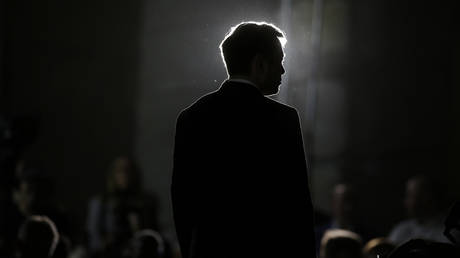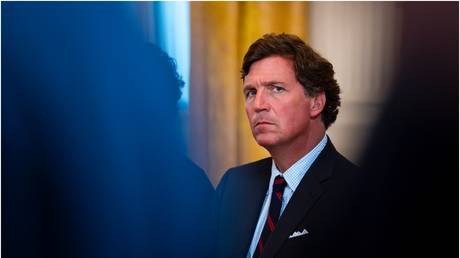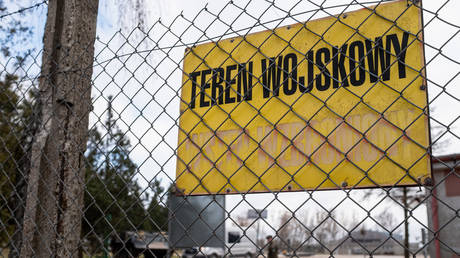
The tech billionaire’s government contracts and transhumanist aspirations must not be disregarded
Elon Musk’s Twitter purchase has thrust the social media censorship debate squarely into the limelight, triggering the left and elating the right. Celebrities and the liberal media were quick to denounce Musk’s stance on free speech (which is odd, given that those on the left were the advocates of the First Amendment just a decade ago) and some deleted their Twitter accounts. Conservatives, meanwhile, and anyone who cares about free speech, immediately raised the eccentric billionaire to superhero status. Almost overnight, he went from ‘cool rich guy who values free market capitalism’ to savior of the First Amendment. And maybe he will be. But let’s take a moment to zoom out on the bigger picture. Twitter is not Musk’s only darling, and maybe we’re placing too much of a burden on one man.
Understandably, without Donald Trump in the White House, regular middle-class Americans long for a hero to disrupt the leftist elite empire. Someone influential, powerful, and brave and who will actually take substantive action is like a godsend to us. And at least on the surface, it appears Elon Musk could fill that role. He’s straight forward, seems genuine, and thus far, capable of dealing with the backlash from his enemies. However, Musk is, first and foremost, a businessman who loves building things and creating. When most of us were still playing with blocks, he was already writing code. It remains unclear how he’s going to like playing politics in the long term, and social media is inevitably political. While that’s not entirely new to the prolific tweeter, politics isn’t his usual territory.
The billionaire has already walked back his “free speech absolutist” comments, explaining that what he really meant was free speech that adheres to the law. Fair enough, but the tweet came across as making him seem a bit less steady on his feet. And he will have to be plenty steady, because he’s going to need the proverbial fighting skills of Mike Tyson to handle what’s coming next under the Biden regime. After all, the Democrats have made it clear that they want to control all information to Orwellian extremes. Is Elon ready for that? And even if he is, there’s really only so much he can do with Twitter. It may be a private company, but private companies are subject to government regulations. The founder of multiple multi-billion-dollar companies, he knows this better than anyone and is no stranger to working with the US government and even seeking its help.
Despite being well known as a believer in a limited, hands-off type of government, Musk has on more than one occasion accepted subsidies from the US government for several of his companies. In addition, SpaceX currently has two contracts with the Pentagon to launch Falcon 9 rockets in the coming year.
Because of the immense societal changes that the richest man in the world’s enterprises could bring to humanity – up to the possibility of colonizing Mars – Musk carries some of the weight of the world on his shoulders. With Twitter, he’s feeling the pressure to choose a political side. He took to his newly acquired social platform just days ago to tweet that he doesn’t like the far left or the far right. Fair enough. But more and more Americans are realizing that big government control over our lives is not necessarily a partisan issue, but a freedom and a human rights issue. Which brings us to Tesla and Neuralink.
In case you aren’t paying attention, many Democrats, and a few Republicans, are working hard to make ALL cars electric, which could feasibly open the door to increased surveillance, just as it has in China. Once an entire population is digitized, it’s an easy next step. I think it’s wise to know where Elon Musk would stand on this, and the role Tesla would play. As an aside, it’s also worth noting the self-driving aspect of Tesla has another significant impact on humanity. It puts us at an increased dependence on machines, making moot our in-the-moment decision-making skills that we have always used to navigate. This aspect alone deserves more discussion than it gets. We cannot become permanent idle passengers. If we do, we are sitting ducks for top-down government control over our travel.
Then there is Neuralink, which Musk co-founded with the noble goal of helping quadriplegics communicate. But when it comes to integrating man with machine in the way Neuralink aspires to do – and especially when it moves beyond a medical purpose, which which Musk has shown the intention to do – we must pause and ask some questions. Specifically, we need to talk about our bodily sovereignty and privacy. Neuralink’s success, like any technology, could be a very good thing, but one that has the potential to be used for the wrong purpose and ultimately abused. Without going into conspiracy-style speculation, it’s reasonable to see that AI could very well create a surveillance state on steroids. This matter is surely on the radar of Elon Musk, who has repeatedly named AI among the biggest existential threats to humanity.
For better or for worse, and I do hope for better, Elon Musk will influence the world substantially. He already has. And for the moment, I’m relieved that he has the upper hand in the information war – his power to shape our online dialogue is extraordinary. It’s how he uses his influence on multiple fronts that will determine at least some aspects of our collective future. Hopefully, he is aware that many people aren’t going to be thrilled with being forced to drive electric cars, especially if they are controlled from a government computer. And it’s not far-fetched to imagine that most of us aren’t too keen on the idea of integrating our brains with machines. Transhumanism might be a fun idea for guys who spend their days in basements playing video games, but for most people, merging our minds with AI is a hard pass. I’d ask him to please consider not what Neuralink can do, but what it should do. We all should ask that question.
I’m inclined to take Elon Musk at face value and believe he will use the power he wields to act in good faith on behalf of his fellow man. But instead of fictionalizing him into a white knight with superhero powers who’s here to save free speech and then the world, I suggest we give the man some space to be human, so we can engage him in a human conversation.




